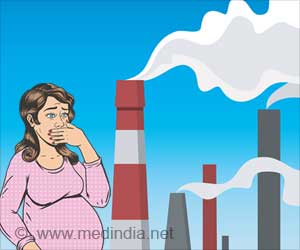Kids’ increasing exposure to environmental hazards can have an adverse impact on their health and development early in life: Experts
Experts have expressed serious concerns over kids’ increasing exposure to environmental hazards that can have an adverse impact on their health and development early in life.
They call upon both industrialized and developing countries to assess the environmental burden of childhood diseases with the aim of improving children’s environments.The WHO researchers insist that almost one in four illness has an environmental cause and such high levels of disease kill more than ten million children each year.
The factors including rapid population growth, overcrowding, and the speedy industrialization, uncontrolled pollution, that have the greatest disease burden, lead to diarrheal diseases, lower respiratory infections and malaria, as well as malnutrition, poisonings, and perinatal conditions.
Factors such as polluted indoor and outdoor air, contaminated water and lack of adequate sanitation, chemical and other toxic hazards, disease vectors, ultraviolet radiation and degraded ecosystems are all important environmental risk factors affecting children around the world.
The child’s developing central nervous, immune, reproductive, and digestive systems, are also more susceptible to irreversible damage from toxins and pollutants.
The scientists call for an action on the environmental threats affecting children’s health so that nations can identify the various factors and address them through remediation.
Advertisement
First, children play and crawl on the ground where they are exposed to dust and chemicals that accumulate on floors and soils.
Advertisement
The team hopes that taking action to address all such issues will ultimately reduce the burden of disease affecting children globally.
Source-ANI
SPH










